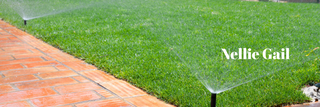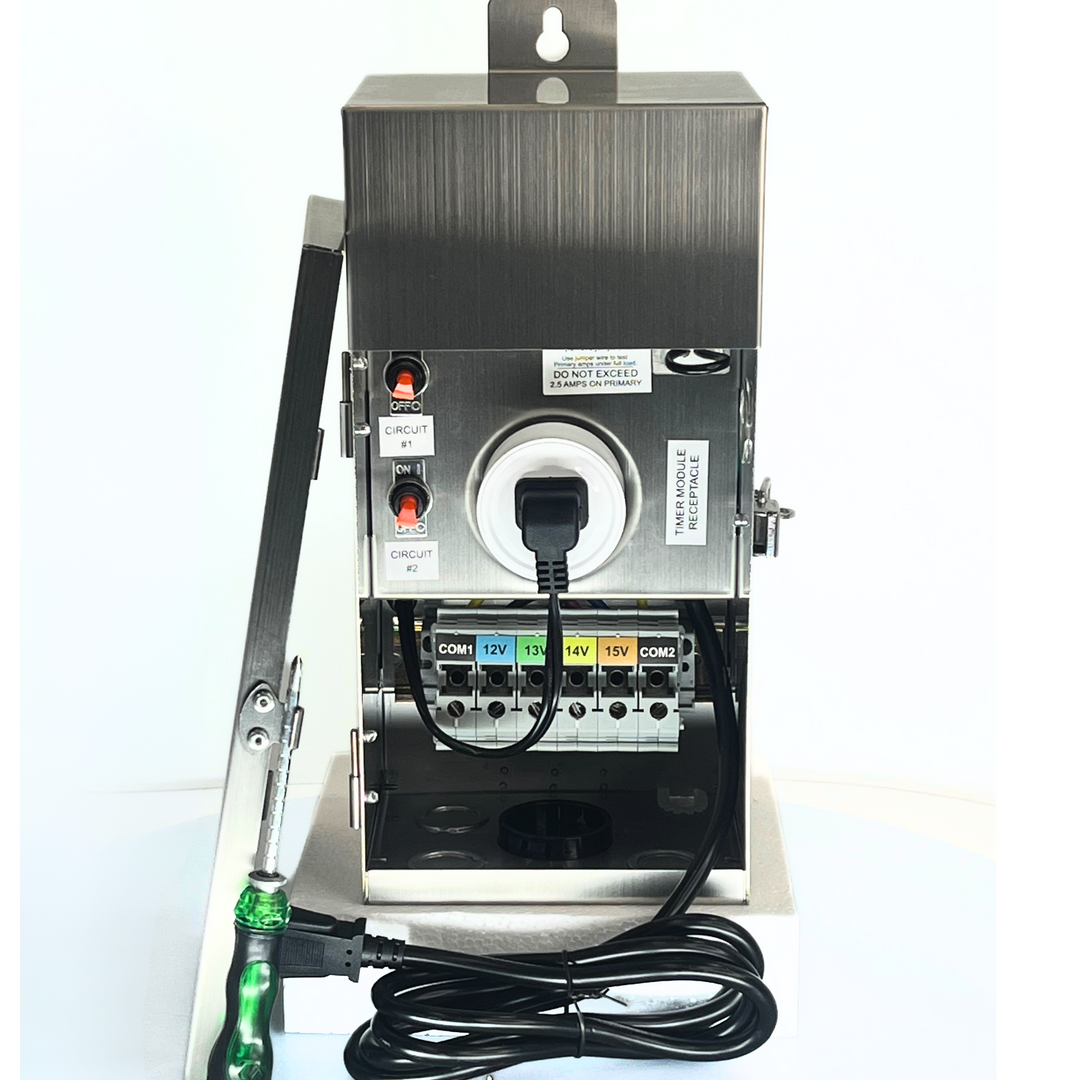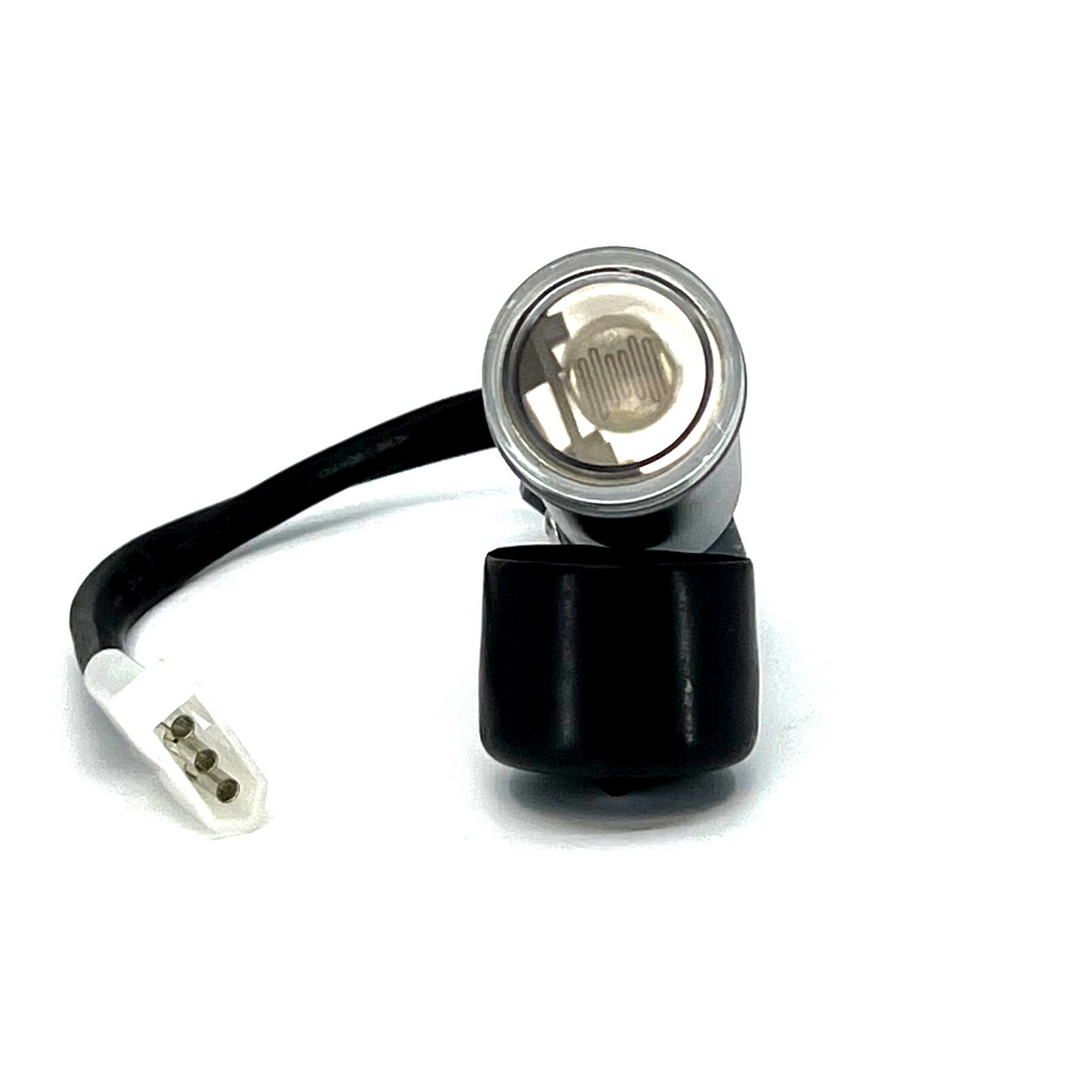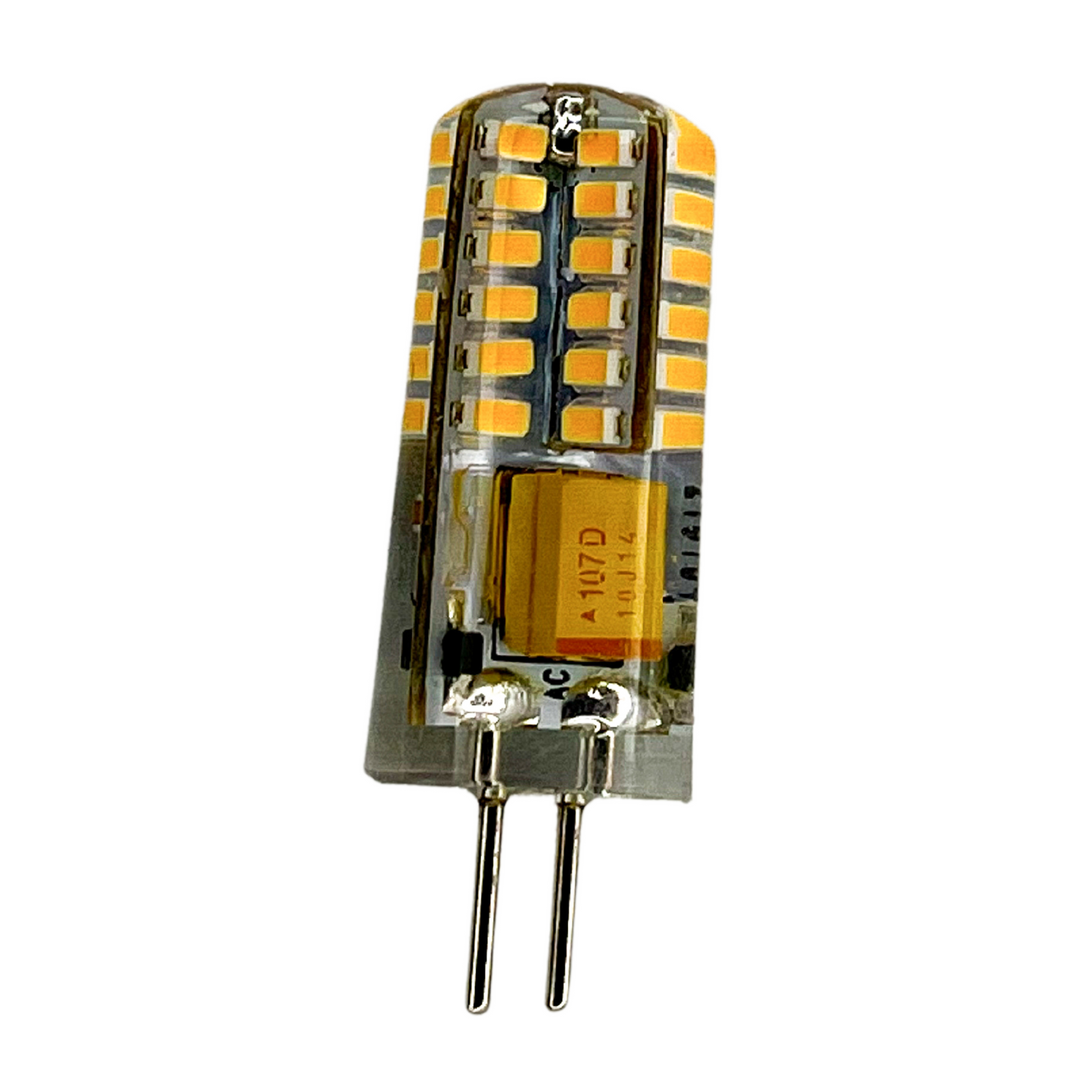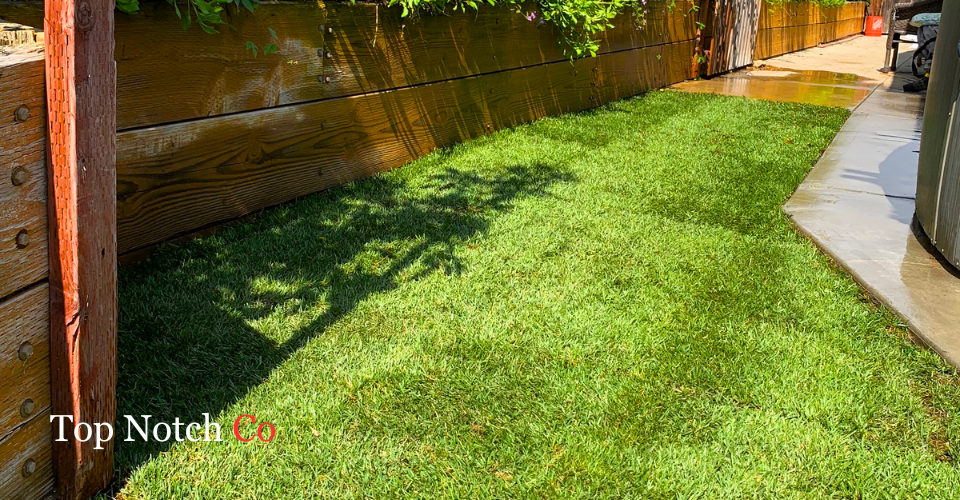
Why Automatic Sprinkler Repair Can Be Your Best Friend and Worst Enemy
|
|
Time to read 7 min
Sprinklers are essential in creating vibrant lawns but can also be detrimental if misused. This comprehensive guide explores the dual nature of sprinklers in lawn care, emphasizing the importance of proper usage and maintenance, including automatic sprinkler repair.
Automatic Sprinkler Repair: The Dual Nature of Sprinklers
While sprinklers are indispensable for lawn maintenance, their misuse can lead to significant lawn problems. Understanding how to leverage their benefits while mitigating risks is vital for any lawn owner.
The Benefits: Ensuring Lawn Health and Convenience
Sprinklers provide consistent, even watering, which is crucial for maintaining a healthy lawn. This consistent hydration promotes robust root growth and prevents dry patches. Automatic sprinkler systems, in particular, offer unparalleled convenience, allowing for scheduled watering that adapts to your lawn's needs, especially beneficial for larger areas.
The Downsides: Water Waste and Potential Damage
Improper use of sprinklers can lead to excessive water usage, increasing your water bill and potentially violating local water conservation regulations. Overwatering not only wastes water but also harms your lawn, leading to waterlogged soil, nutrient depletion, and increased vulnerability to pests and diseases.
Selecting the Ideal Sprinkler System
Choosing the right sprinkler system involves understanding your lawn's specific needs, considering factors such as size, shape, and type of grass.
Sprinkler System Varieties: Pros and Cons
Different types of sprinkler systems, such as oscillating, stationary, and rotating, each have their advantages and limitations. For example, oscillating sprinklers cover a large area and are suitable for rectangular lawns, but they may not provide uniform water distribution in uneven terrains.
Automatic Sprinklers: A Closer Look
Automatic sprinklers are a popular choice due to their convenience and efficiency. They can be programmed to water at optimal times, reducing water waste and ensuring your lawn gets the right amount of water. However, they require regular maintenance and occasional automatic sprinkler repair to stay effective.
Sprinkler Usage Tips: Maximizing Efficiency
Effective sprinkler usage is about more than just turning the system on. It involves understanding your lawn's watering needs and adjusting your sprinkler settings accordingly.
Watering Strategies: Best Practices
• Time your watering to prevent evaporation and ensure deep soil penetration.
• Adjust sprinkler heads to cover your lawn evenly and avoid watering non-grass areas.
• Monitor weather conditions and adjust watering schedules during rainy periods.
Avoiding Overwatering and Underwatering
Finding the right balance in watering is crucial. Overwatering can lead to shallow root systems, while underwatering can stress the grass. Use soil moisture sensors or a simple screwdriver test to gauge soil moisture.
Maintaining Your Sprinkler System
Regular maintenance is key to the longevity and effectiveness of your sprinkler system. This includes checking for leaks, cleaning clogged nozzles, and adjusting sprinkler heads.
The Role of Automatic Sprinkler Repair
Automatic sprinkler repair is vital in addressing common issues like leaks, broken parts, or electrical problems. Prompt repairs prevent larger issues and ensure efficient system operation.
Incorporating Sprinkler Systems into Overall Lawn Care
Sprinklers should be part of a comprehensive lawn care strategy. This includes regular mowing, fertilizing, and aerating, alongside efficient watering practices.
Sprinklers can significantly impact lawn health, both positively and negatively. Understanding their benefits and drawbacks is crucial for effective lawn care.
• Efficient Watering: Sprinklers distribute water evenly across large areas, ensuring every part of your lawn receives adequate hydration. This uniform distribution is especially beneficial for maintaining an even, green appearance.
• Time-Saving Convenience: Automatic sprinklers are a boon for busy homeowners. They water your lawn consistently without the need for manual intervention, saving time and effort.
However, sprinklers, if not used correctly, can lead to various lawn issues.
• Risk of Overwatering: Excessive use of sprinklers can saturate the soil, leading to waterlogging. This can suffocate grass roots, increase the risk of fungal diseases, and weaken the lawn’s overall health.
• Uneven Coverage: Poorly positioned or malfunctioning sprinklers may lead to uneven water distribution. This can result in dry spots or overly saturated areas, both harmful to lawn health.
Choosing the right sprinkler system is a crucial decision for any lawn owner.
• Selecting Based on Lawn Size: For large lawns, rotating or oscillating sprinklers offer wide coverage. For smaller areas, a stationary or drip system might be more appropriate, ensuring water is not wasted.
• Consider Soil and Grass Type: Different soil and grass types have unique watering needs. Select a sprinkler system that matches these requirements to optimize water usage and support healthy grass growth.
Sprinkler maintenance is key to their effectiveness and longevity.
• Regular Inspections: Regularly inspecting and cleaning sprinkler heads prevents clogs and ensures even water distribution. This helps maintain consistent lawn health and appearance.
• Prompt Repairs: Addressing issues like leaks or broken parts immediately through automatic sprinkler repair prevents larger problems. This maintains the efficiency of the sprinkler system and protects your lawn from potential damage.
Integrating sprinklers into a comprehensive lawn care strategy enhances their benefits.
• Balanced Watering Practices: Combine sprinkler use with manual checks for soil moisture. This balanced approach ensures your lawn gets the right amount of water without overreliance on automatic systems.
• Seasonal Adjustments: Adjust sprinkler schedules according to seasonal changes. Reduce frequency during rainy seasons and increase during dry spells to maintain optimal lawn health.
Educating yourself on common sprinkler mistakes helps in avoiding lawn damage.
• Ignoring Weather Patterns: Failing to adjust sprinkler usage based on current weather conditions can lead to overwatering or underwatering. Monitoring local weather forecasts can help in making informed adjustments.
• Neglecting System Upgrades: Upgrading to newer, more efficient sprinkler systems can significantly improve water conservation and lawn health. Consider investing in modern systems with smart features for better lawn care.
Understanding the role of sprinklers in lawn care is vital. They offer efficiency and convenience but require proper usage and maintenance. By making informed decisions about sprinkler types, maintenance, and usage, homeowners can enjoy a healthy, vibrant lawn.
Frequently Asked Questions
Sprinklers are an integral part of lawn care, but they often raise questions among homeowners. This Frequently Asked Questions section aims to address some common queries that you might have about sprinkler systems and lawn maintenance.
Can Sprinklers Be Used in Any Type of Lawn?
Yes, sprinklers can be adapted to any lawn type. However, the choice of sprinkler system should match your lawn's specific needs, including size, soil type, and grass variety.
How Often Should I Water My Lawn with Sprinklers?
Watering frequency depends on climate, soil type, and grass species. Generally, it's best to water deeply and infrequently, about 1-1.5 inches per week, to encourage deep root growth.
Are There Water-Efficient Sprinklers for Drought-Affected Areas?
Yes, there are water-efficient sprinklers designed for drought conditions. These systems, such as drip irrigation or soaker hoses, minimize water usage while effectively hydrating the lawn.
How Can I Tell if My Lawn is Overwatered?
Signs of overwatering include soggy soil, a spongy feeling underfoot, and the presence of moss or algae. If these signs appear, adjust your sprinkler settings.
Seeking Professional Sprinkler Services
For complex systems or persistent issues, professional sprinkler services can provide expert assessments and repairs. They can also offer advice on optimizing your system for your specific lawn needs.
Conclusion: Achieving a Healthy Lawn with Sprinklers
Properly used and maintained sprinklers are invaluable in achieving a lush, healthy lawn. Balancing efficient watering practices with regular maintenance, including automatic sprinkler repair, is the key to a thriving lawn.
Enhancing Lawn Care with Sprinkler Systems
Sprinklers, when used correctly, can transform your lawn into a lush, healthy oasis. Understanding the nuances of sprinkler operation is essential for maximizing their benefits and minimizing potential harm.
Customizing Watering Schedules
Customizing your watering schedule to suit your lawn's specific needs is crucial. Different grass types and soil conditions require varying amounts of water. Utilize timers and programmable settings in automatic systems to provide precise watering.

Adapting to Seasonal Changes
Your lawn's watering needs change with the seasons. In hotter months, increased watering might be necessary, while in cooler periods, reducing the frequency can prevent overwatering. Adjust your sprinkler settings accordingly to adapt to these changes.
The Importance of Water Conservation
While sprinklers are excellent for lawn care, water conservation should always be a priority. Using sprinklers efficiently not only benefits your lawn but also contributes to environmental sustainability.
Eco-Friendly Sprinkler Practices
• Opt for sprinklers with water-efficient features.
• Regularly check for leaks or malfunctions to reduce water waste.
• Consider rain sensors to avoid unnecessary watering during rainy periods.
Sprinkler System Troubleshooting
Regular inspections can identify potential issues before they escalate. Look out for uneven watering patterns, soggy spots, or dry patches, which could indicate sprinkler malfunctions.
DIY vs. Professional Sprinkler Repair
While some issues like cleaning nozzles or adjusting heads can be done DIY, more complex problems may require professional expertise. Engaging in automatic sprinkler repair services ensures your system functions optimally and reduces the risk of future issues.
Our Recommendation
Enhancing Your Lawn's Health with the Right Sprinkler System
A well-maintained sprinkler system can significantly enhance your lawn's health. It ensures deep, even watering that encourages strong root growth and resilience against pests and diseases.
Regular Maintenance: A Key Aspect
Regular maintenance, including cleaning, adjusting, and repairing, is vital for sprinkler longevity. It ensures your lawn receives the right amount of water at the right time, promoting healthy growth.
All Things Considered
Maintaining a Lush Lawn Using Sprinklers Efficiently
Sprinklers are a useful tool for keeping your lawn healthy and vibrant, as long as you use them correctly. It's crucial to strike a balance between efficient watering, routine maintenance, and automatic sprinkler repairs to promote healthy growth. By understanding the potential of sprinklers and taking proper care of them, you can ensure they enhance rather than damage your lawn. Contact Top Notch today to Book an Appointment and maximize your lawn's potential!










